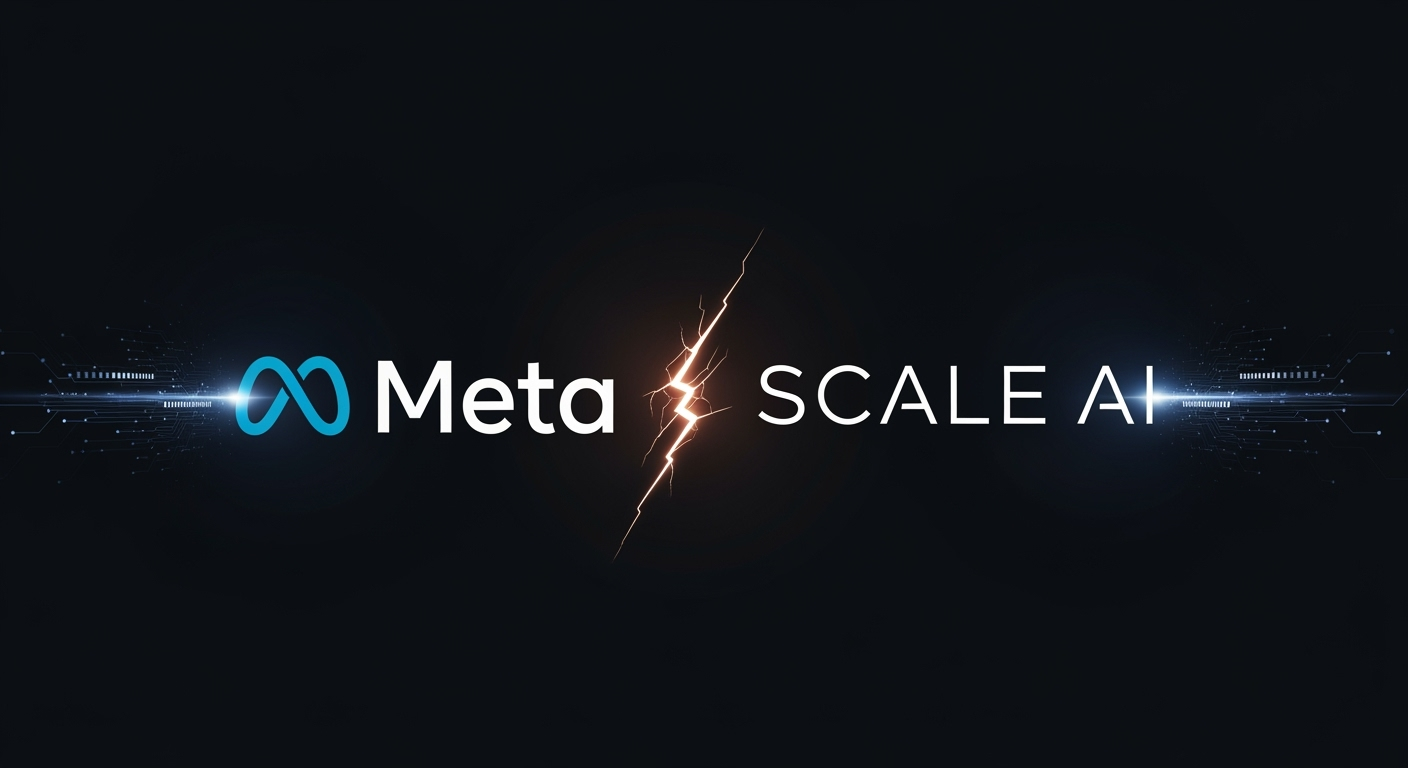Meta’s Multi-Billion Dollar Bet on Scale AI Faces Early Strains

Meta’s Investment in Scale AI Hits Early Turbulence
Just a few months after Meta’s $14.3 billion investment in Scale AI, cracks are already surfacing in the partnership. The collaboration, which brought Scale AI’s CEO Alexandr Wang and several top executives to lead Meta Superintelligence Labs (MSL), was designed to accelerate Meta's AI ambitions. However, signs of friction and internal realignment are already emerging.
Executive Departures and Team Shifts
One of the first red flags: Ruben Mayer, former Scale AI Senior VP of GenAI Product and Operations, has exited Meta after only two months. Mayer, who oversaw AI data operations at MSL, was not included in the core TBD Labs team, which is tasked with building Meta's next-generation AI models. This core unit has attracted top talent from OpenAI, but not all Scale AI leaders brought over have been integrated into central roles.
Meta Diversifies Data Partnerships
Despite Meta’s significant financial commitment, the company isn’t relying solely on Scale AI for data. According to multiple sources, TBD Labs continues to work with other third-party data providers, including Mercor and Surge AI—both direct competitors to Scale AI. While working with multiple vendors is standard in the AI industry, Meta’s ongoing preference for alternative data sources, even after a massive investment, is noteworthy. Some researchers reportedly view Scale AI’s data as lower quality compared to competitors.
Industry Shifts and Competitive Pressure
Scale AI originally built its reputation on a crowdsourced, low-cost workforce for data annotation. As AI evolves, there’s a growing need for high-quality, domain-specific data, often requiring experts like doctors and scientists. While Scale AI is trying to catch up by recruiting experts through its Outlier platform, competitors like Surge AI and Mercor, built around high-paid, specialized talent, have gained momentum.
Impact on Scale AI and Broader Industry Fallout
The fallout from Meta’s investment was swift: OpenAI and Google both announced plans to end their relationships with Scale AI. Not long after, Scale AI laid off 200 employees, shifting focus toward government contracts, including a recent $99 million deal with the U.S. Army.
Internal Instability at Meta’s AI Unit
Meta’s AI division itself appears unsettled. New hires from OpenAI and Scale AI have expressed frustration with Meta's bureaucracy and shifting priorities. Some have already left, and long-standing members of Meta’s GenAI team have departed as their roles were reduced. The company’s largest AI investment to date, intended to boost its competitiveness after a lukewarm Llama 4 launch, may be off to a rocky start.
Meta’s Broader AI Strategy
Despite internal turbulence, Meta is pushing ahead aggressively. CEO Mark Zuckerberg has aggressively recruited top AI talent from OpenAI, Google DeepMind, and Anthropic, and acquired AI voice startups such as Play AI and WaveForms AI. Partnerships like the recent tie-up with Midjourney for image and video generation, and the construction of the massive $50 billion Hyperion data center in Louisiana, highlight Meta’s determination to regain ground in the AI race.
What’s Next for Meta and Scale AI?
With new leadership at Scale AI and ongoing reshuffling within Meta’s AI teams, both companies face uncertainty. The key questions: Can Meta stabilize its AI division and make good on its ambitious plans? And will Scale AI remain a core data partner, or will Meta’s investment prove more valuable for talent acquisition than for its data services?
References
- Cracks are forming in Meta’s partnership with Scale AI
- Meta invests $14.3 billion in Scale AI
- Scale AI announces next phase after Meta investment
- OpenAI drops Scale AI after Meta deal
- Google reportedly plans to cut ties with Scale AI
- Scale AI to cut 14% of staff after Meta investment
- Scale AI wins $99M U.S. Army contract
- Meta releases Llama 4
- Meta's planned $50 billion AI data center
- Meta hires key OpenAI researcher
- Meta acquires Play AI
- Meta acquires WaveForms AI
- Meta partners with Midjourney
- MSL working on next-gen AI model
- Researchers leave Meta Superintelligence Labs
- Rishabh Agarwal announces departure from Meta
- Chaya Nayak announces departure from Meta
- Rohan Varma announces departure from Meta





